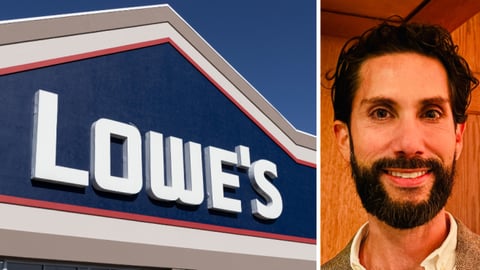Share of Voice in Harmony: How NBG Home Found its Single Source of E-Comm Truth
The quickest way to spin in circles is to have everyone row in a different direction.
As e-commerce continues to skyrocket, supplied with a COVID-19-prompted kick in the pants, consumer goods companies are increasingly exploring the tech investments that give that much-needed competitive advantage. But most executives experienced in change management will tell you that the shiniest tech in the world isn’t effective when everyone has their own method of measuring success. Misaligned KPIs only lead to disorganization and inefficiency, not harmonization and profitability.
For Don Brett, chief digital officer of NBG Home, achieving this harmony has translated into developing a single source of truth for the home goods manufacturer, which markets its products under such brands as Cheyenne Products, DSI Lighting and Quoizel, among others. Upon joining the company last fall, Brett segmented the company’s tech stack into five core platform pillars: content, media, insights, DTC and channel optimization.
Drawing on his 15 years of experience from Newell Brands — he quoted the adage of “Good judgment comes from experience and experience comes from bad judgment” in a recent interview with CGT — he joined NBG as someone well versed in the familiar, ongoing challenge of linking the moving parts of a large organization.
And when it comes to developing search authority on Amazon and other e-commerce sites, coordination between teams is paramount to success. “The days of sales looking at one metric and the marketing team not having connectivity to it was not going to work,” Brett says.
This is particularly relevant when linking sales and marketing with the supply chain. For one thing, it makes little sense to spend money on search keywords when those keywords are out of stock because sales had spiked higher than anticipated.
This disconnect is a common problem at many consumer goods companies, Brett says. “Not only are they not connected, but nobody even knows what the actual answer is [or] what everyone's looking at. So it gets very confusing to try to grow sustainable sales at a profitable level.”
What’s more, NBG wasn’t ranking nearly as high for the search terms that by all rights it should have been winning. Upon partnering with CommerceIQ, an e-commerce operations, advertising and platform provider, they learned that for the 40 million-plus Amazon searches done each month for keywords in NBG’s space — e.g., picture frames, throws, blankets — NBG was only ranking on p. 1 of desktop searches or p. 3 of mobile 1% of the time.
By leveraging CommerceIQ’s Advertising Managed Service, NBG was able to optimize its Share of Voice (SoV) growth by tracking the forever-in-flux world of shifting keywords. In addition to verifying NBG was allocating funds toward the correct keywords and the ones it had in stock, it also ensured it wasn’t spending on keywords it had already captured organically. In doing so, the company increased its SoV by 17% in Q1 2020 vs. Q4 2019.
“Being able to see our Share of Voice and our top keywords is very meaningful,” Brett notes. “With ‘Retail 2.0,’ everyone has to be a little bit better with better information because everything is going faster. If our Share of Voice isn’t doing what we need to do, we can then adjust our advertising to either increase our Share of Voice the way we want it or decrease it. We also have the ability to see our PPM or our profitability. So you really get a full picture.”
This visibility has in turn provided NBG with more efficiency and even more confidence. “We now have a unified source of information that all of the functional areas have accepted as the reality and as our truth. It’s allowed the supply chain to make better decisions and finance to make better decisions. We’re able to react from a marketing perspective.”
In Brett’s view, the value of SoV will only grow as e-commerce continues to rise, especially when it’s properly married within the integration of sales, marketing and operations teams. Having this level of clarity, insight and coordination is the competitive advantage that will become table stakes, and applying automation to the process is crucial.
As Brett notes, the metrics applied in stores can't just be applied online as universally applicable. And in addition to having everyone on the same page with these new metrics, it’s automation that will unlock a company’s ability to grow sustainably and profitably.
“The ability to have automation at scale is very, very important so that you can actually have a cost-to-serve model that allows you to grow sustainably and profitably,” he says. “I've learned along the way that just putting bodies on something is not always the right solution, especially if there is a more [cost effective and] sustainable solution that can enable and act as a key point of differentiation vs. those that you compete against.”






